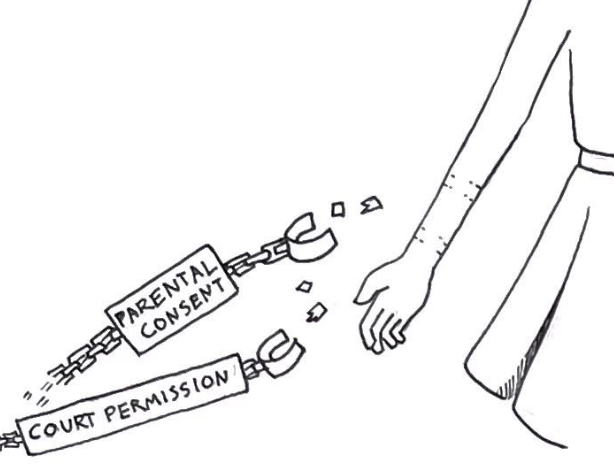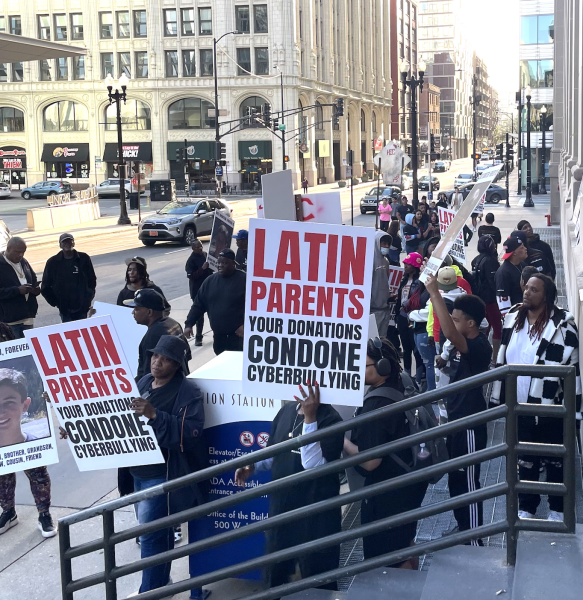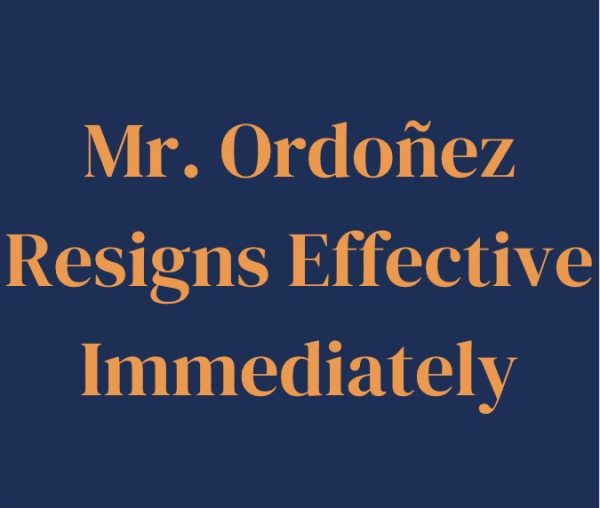Illinois Parental Notice of Abortion Act Repealed, Latin Students React
The Illinois General Assembly last week repealed the Parental Notice of Abortion Act (PNA). The PNA required doctors and health care providers to notify the parent or guardian of minors seeking an abortion 48 hours in advance of the prodedure. HB370, the Youth Health and Safety Act, repealed the PNA when the Illinois House, in the wee hours of the morning of October 28, passed the vote 62-51-3.
The law will now go to Gov. J.B. Pritzker for his signature, but because the new law repealing the PNA did not get a three-fifths majority, it cannot be signed or go into effect until June 1, 2022. That means for the next seven months, teenagers in Illinois will still be subject to the requirement of parental notification to have an abortion.
Gov. Pritzker has promised to sign the repeal into law as soon as he can. “I’ll be proud to sign this legislation. I will not waver in the battle to protect reproductive rights,” he said. “This repeal was essential because it is the most vulnerable pregnant minors who are being hurt the most by this law; victims of rape, incest, and physical abuse,” he added in his October 28 statement.
For the next seven months—as it has been since 2013—the only way for a person under the age of 18 to have an abortion in Illinois without notifying her parent or guardian is to seek judicial bypass, meaning actually going before a judge to get permission. Opponents of the repeal argue that having to obtain a judge’s decision is too intimidating, too difficult to navigate, and can add too much time to the process. By having to figure out how to obtain a judicial bypass, make the actual appointment with the judge, and then make it to that appointment, several weeks could be added before the person seeking an abortion would be able to obtain it. By the time a pregnant person secures a bypass, they may be too far along in their pregnancy to have the abortion or to have the least invasive procedure. Additional rationale for the repeal was that young people could be at risk for abuse or interference from the adult notified.
Illinois organizations serving women’s reproductive health needs reacted quickly to the news. “By passing the Youth Health and Safety Act, Illinois has ensured that young people can choose to involve the people they trust in their health care decisions and are protected from harmful domestic situations and unnecessary judicial interactions,” Planned Parenthood of Illinois tweeted. “In short, all Illinoisans, regardless of age, now have the full legal autonomy to make decisions about what’s best for their bodies.”
Latin students reacted to the news as well.
Junior Alice Mihas weighed in, supporting the repeal. “I think by repealing the parental notification law for minors getting an abortion allows minors to make their own choices about there bodies,” she said. “Repealing this law allows minors to do what they believe is best for them rather than forcing them to comply with their parents’ wishes. If a minor does not want to bear a child, they should not be forced to by their parents.”
“Honestly,” said junior Carmen Pastrana, “I feel like this is a battle between freedom of choice and the right to your own body [versus] parental rights to do what you believe is best for your child. Given this, I would say that I most likely would side with the rights of the child who wants to get an abortion, because you never truly know what is going on in that person’s life and how her family might be negatively impacting her decision or forcing her to make a choice she does not agree with. Just as a women deserves the right to receive an abortion during her pregnancy in Texas, a girl deserves the right to get an abortion if she believes that is what is best for herself.”
At a time when many states are passing more restrictive abortion laws, with Texas essentially eliminating access to abortion as early as six weeks, Illinois has done the opposite. With repeal of this law, Illinois will be a state with one of the most expansive reproductive rights and most expansive access to abortion in the country. Illinois is on its way to being the 14th state to have no restrictions in the way of a minor’s access to abortion.
Junior Anna Hynes pointed out the juxtaposition of Illinois and states like Texas. “I’m ecstatic about Illinois repealing the parental notification act for minors,” Anna said. “It makes me feel a lot safer here in Chicago, especially after the Texas situation. It just feels like we’re taking steps in the right direction, which is comforting.”
“Although I believe that this is a great step in abortion access,” said junior and co-head of Latin’s Intersectional Feminist Alliance, Madison Vanderbilt, “I am well aware of the blind spots that our House has missed. They have neglected to understand that without Medicaid, these teenagers will have to still use their parents’ insurance, and what teenager has the possible thousand dollars to pay abortion fees out of pocket? By no means is this repeal a step back for reproductive rights, but it does not take into account the financial barriers that many face to receive treatment.”
Proponents of the repeal also pointed out the inconsistency in the current Illinois law, because minors in Illinois don’t need to consult with their parents about carrying a pregnancy to term. Minors don’t need to consult with their parents about giving their baby up for adoption. It is a medical fact that pregnancy is far more dangerous than an abortion.
Dr. Angela Chaudhari, a Latin parent and Chief of Gynecology and Gynecologic Surgery at Northwestern University, said, “The biggest concern with this law was how it impacted our most vulnerable patients, those that may not have involved guardians in their care or those that may themselves be victims of child or domestic abuse. With the change in the law, we are opening up necessary healthcare to a population of patients that most need it.”
“As a parent, it is more difficult,” Dr. Chaudhari added, “When thinking about my own children, it is difficult to imagine them making a major medical decision without me. … As a physician, I encourage all of my patients to talk with family and have support people available to make any difficult medical decisions. That conversation is still the same surrounding abortion. But by removing barriers to care for patients who have different relationships than my own with their families, we allow all patients access to equitable and necessary healthcare.”
Proponents of the repeal pointed to data that showed that the vast majority of young people involve their parents in their abortion decision, but those who don’t cannot for important reasons—fear of physical or psychological abuse, being kicked out of their home, being forced to carry a pregnancy to term against their will, or worsening an already challenging family situation.
Supporters of maintaining the PNA, on the other hand, believe in the paramount importance of parents being involved in healthcare decisions of their children. Amy Gehrke, Executive Director of Illinois Right to Life, was “shocked and appalled” at the repeal of the notification requirement. “This was a common-sense law,” Gehrke said. “This was an issue that transcended abortion and went to the heart of parents’ right to be involved in the health care of their minor daughters.”
Former Latin parent and Special Counsel of the ACLU Reproductive Freedom Project Lorie Chaiten worked for many years to repeal the PNA. “Repeal of this dangerous law comes at a critical time, as hostile states increasingly try to shut down abortion care,” Ms. Chaiten said. “Access in Illinois will mean the difference for many young people between accessing the abortion care they need and being forced to carry a pregnancy to term against their will.”
Once the Youth Health and Safety Act is signed into law, Illinois will have the least restrictions on access to abortion of any Midwestern state, and will be the only such state not to require parental involvement before a minor is able to have an abortion.

Matthew Kotcher ('23) is thrilled to continue to serve on The Forum as the Arts Editor and now as Director of Staff Recruitment and Development. Matthew,...














































